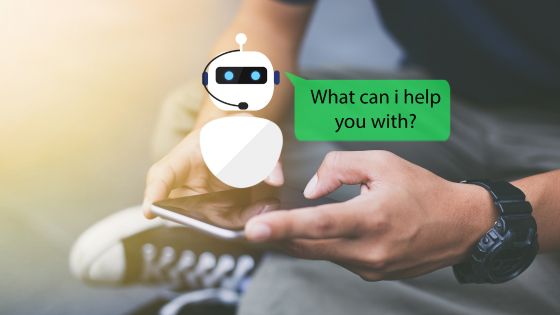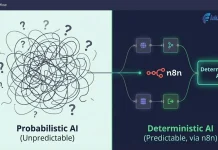ChatGPT is an advanced artificial intelligence (AI) language model designed to interact with human beings in natural language. It is one of the most powerful language models ever created, with a vast amount of knowledge on various topics, ranging from science and technology to literature and history and software engineering.
The model was created by OpenAI, a research organization that focuses on developing advanced AI systems. The technology behind ChatGPT is based on a type of AI called “deep learning,” which uses artificial neural networks to learn from large amounts of data.


ChatGPT is unique because it can understand and generate human-like responses to a wide range of questions and requests. It can converse with people on a variety of topics, including current events, personal interests, and even deep philosophical questions and even help with software development instead of hiring remote software engineers.
The language model is designed to be user-friendly, and anyone can interact with it using natural language. ChatGPT can help with everyday tasks like setting reminders, answering questions, helping with hiring of software engineers and even providing recommendations for products or services.
One of the most significant benefits of ChatGPT is its ability to learn and adapt to user behavior over time. As users interact with the language model, it gains a better understanding of their preferences and can tailor its responses accordingly.
ChatGPT has the ability to provide personalized recommendations and insights. By analyzing user data, the language model can suggest relevant content or products that users may find interesting. For example, it can hep curate a list of pre vetted remote software engineers for hiring at an affordable pricing compared to traditional hiring
The most significant use of ChatGPT is customer service. ChatGPT can be used as a chatbot to provide personalized assistance to customers, reducing customer service costs and improving customer satisfaction. Similarly, ChatGPT can be used as a personal assistant to help individuals manage their daily tasks and stay organized.
Another important application of ChatGPT is in language translation. With its natural language processing capabilities, ChatGPT can be used to develop advanced language translation tools that can help people communicate more effectively across different languages and cultures.
In research, ChatGPT’s vast knowledge base can be used to generate insights and recommendations. It can help researchers and scientists get access to large amounts of data quickly and efficiently.
In education, ChatGPT can be used as a virtual tutor, providing personalized feedback to students and answering their questions. This can help students get access to quality education and improve their learning outcomes.
Finally, ChatGPT can also be used by software developers and technology companies to code faster and better using the technology along with remote software developers providing them an edge over their competitors.
ChatGPT is a powerful AI tool developed by software engineers that has the potential to revolutionize the way we interact with machines. It is user-friendly, highly adaptable, and capable of understanding and generating natural language responses. As the technology continues to evolve, it is likely that ChatGPT will become even more advanced and useful to people in their everyday lives.
ChatGPT is certainly a significant development in the field of artificial intelligence and has the potential to play a significant role in the future of software development. However, it is important to note that the internet is a complex and rapidly evolving system, and it is impossible to predict with certainty what the future will hold.
That being said, ChatGPT’s ability to interact with people in natural language and provide personalized recommendations and insights could make it an essential tool for people to use online. As the technology continues to evolve, it is possible that ChatGPT or similar language models could become even more sophisticated and capable, leading to a more intuitive and personalized internet experience.
Moreover, as more people use ChatGPT and other AI systems, the data that these systems generate could be used to develop new insights and applications that could further transform the internet.
ChatGPT can help people protect their online privacy by providing information, recommendations, and guidance on privacy tools and settings.Firstly, it can educate users about online privacy and the different ways in which they can protect themselves.
Secondly, ChatGPT can recommend privacy tools based on the user’s needs and preferences. Thirdly, it can provide guidance on how to adjust privacy settings on various platforms to ensure maximum privacy. Fourthly, users can ask ChatGPT any questions they have about online privacy, and it can provide answers and recommendations.
Finally, ChatGPT can offer general security advice, such as using strong passwords and being cautious about clicking on suspicious links. In a world where digital privacy is becoming increasingly important, ChatGPT’s ability to offer guidance on this topic is valuable. By educating users and offering practical advice, ChatGPT can empower people to take control of their online privacy and stay safe while using the internet.
In summary, while it is impossible to say for certain what the future of the internet will look like, ChatGPT and other AI systems are likely to play an important role in shaping it. As the technology continues to evolve, we can expect to see new and innovative applications of AI that could transform the way we interact with the internet and each other online.
















